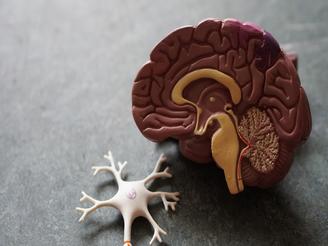10 Causes of Neuropathy: Understanding the Underlying Factors
Neuropathy, a condition affecting the nerves, can result from various underlying factors. This article explores 10 common causes of neuropathy and provides insight into the factors that contribute to this condition.
Diabetes
Diabetes is the most common cause of neuropathy, with up to 50% of people with diabetes experiencing some form of nerve damage[[2]]. High blood sugar levels can damage nerves over time, leading to diabetic neuropathy. Proper management of diabetes is crucial to prevent or slow the progression of neuropathy[[2]].

Advertisement
Chemotherapy
Chemotherapy-induced peripheral neuropathy is a common side effect of cancer treatment. Certain chemotherapy drugs can damage peripheral nerves, leading to pain, numbness, and tingling in the hands and feet[[3]]. The severity of neuropathy depends on the type of chemotherapy drug, dosage, and duration of treatment[[3]].

Advertisement
Alcohol Abuse
Excessive alcohol consumption can lead to nerve damage, known as alcoholic neuropathy. Alcohol can have a toxic effect on nerve tissue, and alcohol abuse can also lead to vitamin deficiencies that contribute to neuropathy[[4]].
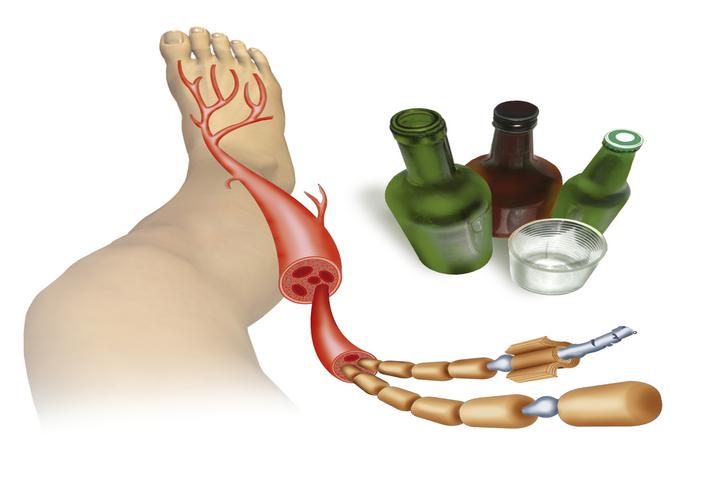
Advertisement
Vitamin Deficiencies
Vitamin deficiencies, particularly in vitamins B1, B6, B12, and E, can cause neuropathy. These vitamins are essential for nerve function, and a deficiency can lead to nerve damage and neuropathy symptoms[[5]]. Proper nutrition and supplementation can help prevent or alleviate neuropathy caused by vitamin deficiencies.

Advertisement
Autoimmune Diseases
Autoimmune diseases, such as lupus, rheumatoid arthritis, and Sjögren’s syndrome, can cause neuropathy. In these conditions, the immune system mistakenly attacks the body’s own nerves, leading to nerve damage and neuropathy symptoms[[6]].

Advertisement
Infections
Certain infections, such as Lyme disease, shingles, and HIV, can cause neuropathy. These infections can directly damage nerves or trigger an immune response that leads to nerve damage[[7]].
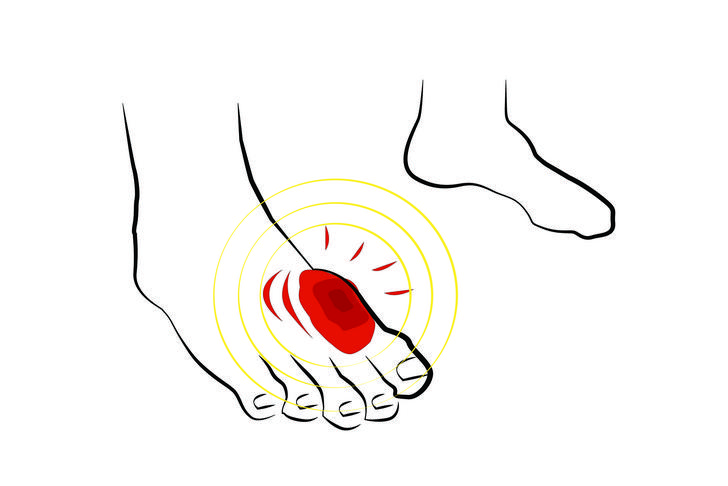
Advertisement
Kidney Disease
Kidney disease can cause neuropathy, as the buildup of toxins in the blood due to impaired kidney function can damage nerves. Proper management of kidney disease can help prevent or alleviate neuropathy symptoms[[8]].
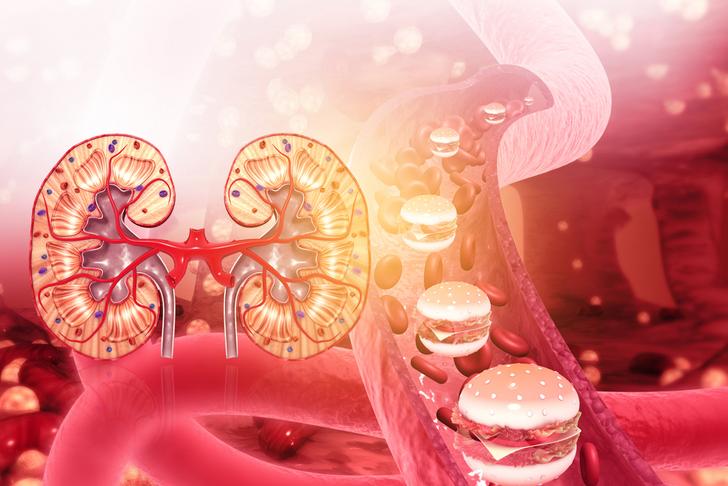
Advertisement
Hypothyroidism
Hypothyroidism, or underactive thyroid, can cause neuropathy. Low thyroid hormone levels can lead to muscle weakness, numbness, and other neuropathy symptoms. Treatment with thyroid hormone replacement can help alleviate these symptoms[[9]].
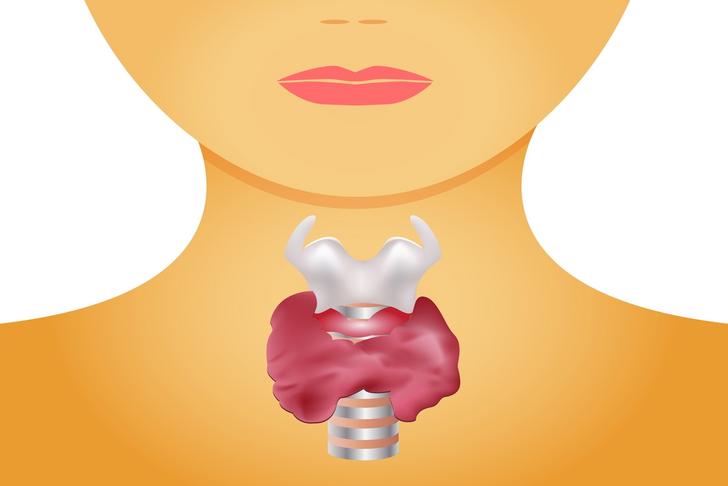
Advertisement
Hereditary Factors
Some forms of neuropathy are hereditary, meaning they are passed down through families. Hereditary neuropathies, such as Charcot-Marie-Tooth disease, are caused by genetic mutations that affect nerve function[[10]]. Treatment for hereditary neuropathies focuses on managing symptoms and maintaining quality of life.
Advertisement
Symptoms
Neuopathy symptoms can vary significantly based on the type and location of the nerves affected. Common symptoms may include:
Numbness and tingling: These sensations are often felt in the hands and feet but can affect other body parts.
Sharp, throbbing, or burning pain: The pain can be severe and usually occurs at night.
Extreme sensitivity to touch
Lack of coordination and falling
Muscle weakness: In severe cases, it may cause paralysis.
Heat intolerance and altered sweating
Digestive problems, such as bloating, constipation, or diarrhea: This occurs if the nerves serving the digestive system are affected.
Changes in blood pressure, causing dizziness or lightheadedness
Advertisement
Treatments
Treatment for peripheral neuropathy usually aims to manage the condition causing the neuropathy and relieve symptoms. This can involve:
Managing underlying conditions: For many people, managing the condition that caused the neuropathy can help the symptoms. For example, if diabetes is the cause, controlling blood sugar levels may reduce neuropathic symptoms.
Medications: Over-the-counter pain relievers can be used for mild symptoms. For more severe symptoms, doctors might prescribe painkillers, anti-seizure medications, or antidepressants, which can all help to reduce nerve pain.
Topical treatments: Capsaicin cream or a lidocaine patch can help numb the skin and reduce pain.
Therapies: Physical therapy may help to improve movement if neuropathy affects motor nerves. If neuropathy affects the autonomic nerves, therapies to improve functions such as digestion, heat intolerance, and changes in blood pressure might be needed.
Lifestyle changes: Regular exercise, a healthy diet, quitting smoking, and avoiding alcohol can all help manage neuropathy.
Alternative therapies: Acupuncture, massage, and herbal medications can be helpful, but more research is needed.
To recap, neuropathy is a condition that impacts the peripheral nerves, resulting in a range of symptoms that can significantly affect an individual’s quality of life. These symptoms often include numbness and tingling sensations, pain, sensitivity to touch, muscle weakness, and sometimes issues with digestion or changes in blood pressure. The causes of neuropathy are diverse, encompassing conditions like diabetes, vitamin deficiencies, autoimmune diseases, kidney disease, alcohol abuse, and certain inherited disorders.
Understanding the root cause of neuropathy is vital to managing this condition effectively. This understanding can be facilitated by a healthcare provider providing a thorough evaluation and guiding treatment decisions. Treatment strategies for neuropathy aim to address the underlying condition and alleviate the symptoms, often involving a combination of medication, physical therapy, and lifestyle modifications.
It’s crucial to communicate openly with your healthcare provider before initiating any treatment plan for neuropathy to ensure it is safe and appropriate for your situation. Alternative therapies like acupuncture and massage can also play a role in managing symptoms, though more research is needed in these areas.
Advertisement
Conclusion
In conclusion, while neuropathy can pose significant challenges, a comprehensive understanding of its causes and a tailored, patient-centered treatment approach can help manage this condition effectively. With the guidance of a healthcare provider, individuals living with neuropathy can navigate their treatment options and improve their overall well-being.

Advertisement




